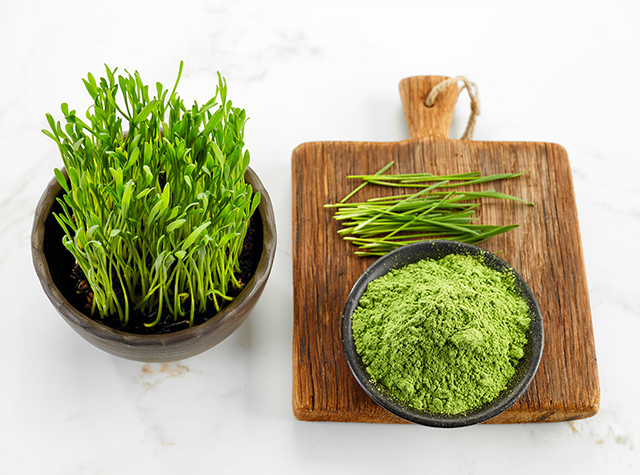
Hexacosanol in barley sprouts regulates AMPK activation and inhibits SREBP-2
In their study, the researchers investigated the hypocholesterolemic activity of hexacosanol on hepatocytes (liver cells) and mice with high-fat diet-induced obesity. They hypothesized that hexacosanol, a policosanol derived from barley sprout, could decrease cellular and plasma cholesterol levels. Policosanols are bioactive components of plants that are known for their cholesterol-lowering effect. However, the mechanisms underlying their activity are not well-understood.
After hexacosanol treatment, the researchers observed the following in hepatocytes:
- 38 percent reduction in total cholesterol
- 33 percent reduction in free cholesterol
- 55 percent reduction in cholesteryl ester concentrations
Cholesteryl ester is a lipid formed when a fatty acid binds to cholesterol via esterification. Cholesteryl ester is the intracellular storage form and intravascular transport form of cholesterol inside the body. (Related: Study: Grape leaves exhibit antioxidant, anti-hypercholesterolemic properties.)
The researchers also reported that oral administration of hexacosanol for eight weeks significantly reduced plasma hepatic cholesterol concentrations by 15 percent and hepatic steatosis by 40 percent in high-fat-fed mice. They found that hexacosanol binds to the allosteric regulation site of AMP-activated protein kinase (AMPK)-beta subunit to activate AMPK. AMPK activation causes the phosphorylation of 3-hydroxy-3-methyl-glutaryl-coenzyme A reductase and the subsequent inhibition its activity.
In addition, researchers found that hexacosanol activation of AMPK induces hepatic autophagy, which further reduces hepatic lipid accumulation. This particular activity can be used in preventing or treating fatty liver disease. Hexacosanol also suppressed the nuclear translocation and activation of sterol regulatory element-binding protein-2 (SREBP-2), a key transcription factor in cholesterol biosynthesis.
Based on these results, the researchers concluded that the hypocholesterolemic activity of hexacosanol is due to its ability to regulate AMPK activation and suppress SREBP-2, which causes the inhibition of 3-hydroxy-3-methyl-glutaryl-coenzyme A reductase mRNA expression and protein activity. This biological activity makes hexacosanol a potential alternative medicine for the treatment of heart disease and fatty liver disease.
More on barley sprouts
Barley sprouts are commonly used to feed livestock. A study on its nutrient content showed that the younger the sprouts, the greater the amount of nutrients they contain. Aside from having an abundance of fatty acids and amino acids like cystine, alanine, and aspartic acid, barley sprouts are also rich in minerals like copper, sodium, and zinc. Barley seeds can usually be sprouted within three days using good sprouting techniques.
Barley (Hordeum vulgare) belongs to the grass family and is an excellent source of dietary fiber and essential minerals. Hulled barley, in particular, is a better choice than whole-grain oats as it contains more fiber and less fat and calories. Hulled barley refers to barley that has gone through minimal processing to remove only its inedible outer hull. Barley contains 354 calories, 2.3 g of fat, and 17.3 g of fiber per gram.
As a bonafide superfood, barley is known for the following nutritional health benefits:
- Soluble and insoluble fiber: Aids in digestion, prevents gallstones, lowers blood pressure
- Beta glucans: Lowers cholesterol, reduces appetite, promotes weight loss
- Nutrient content: Provides essential vitamins, minerals, and antioxidants (lignans)
- Magnesium: Improves insulin-mediated uptake of glucose
- Phytic acid, phenolic acids, and saponins: Protects against cancer and slows its development
Because of these health benefits, barley is a great substitute to refined grains and white rice. It is also cheap and easy to include in any type of diet. Barley can be added in salads, soups, breads, and desserts, or eaten as a cereal for breakfast.
Sources include:
Please contact us for more information.























